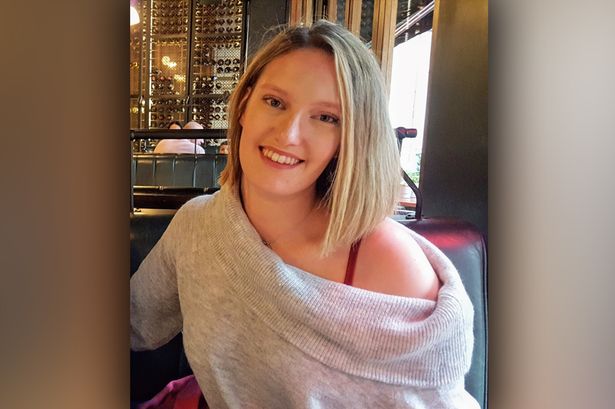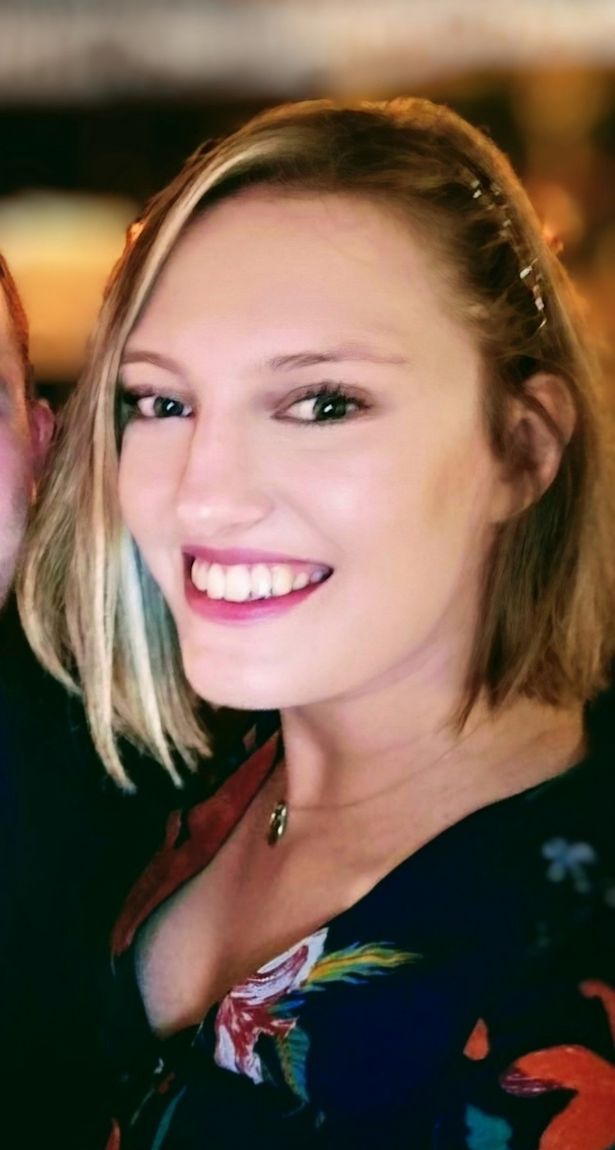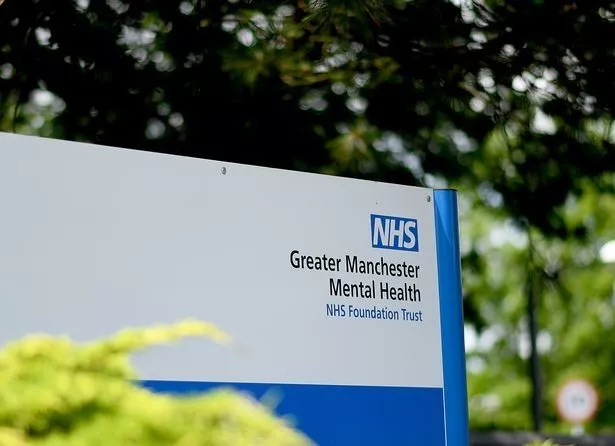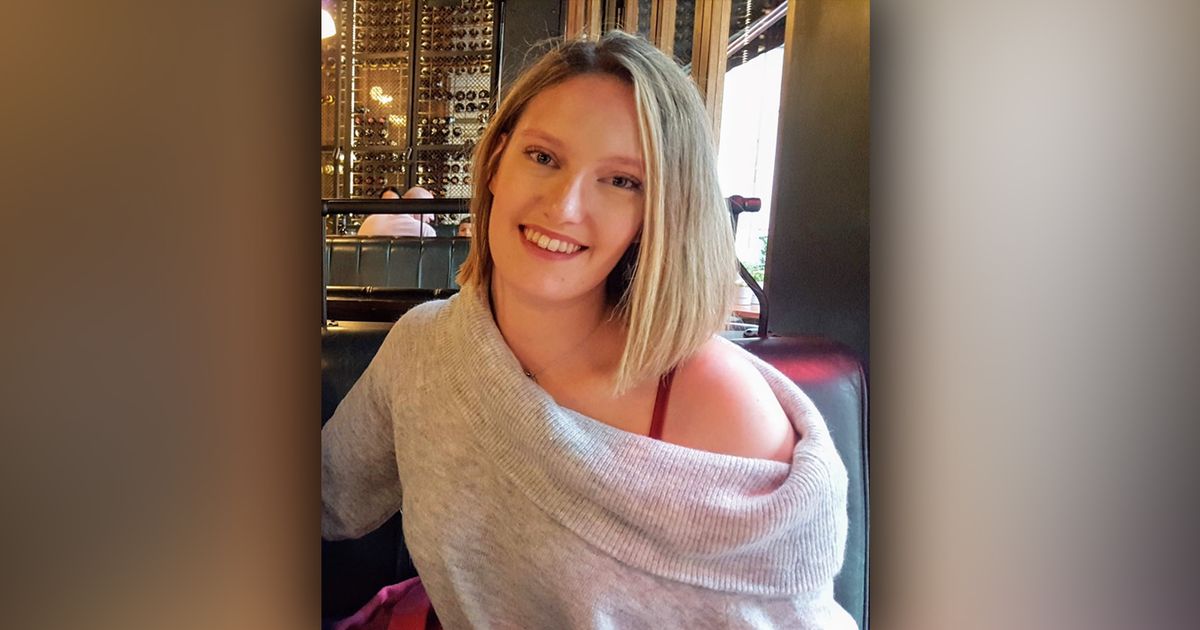An inquest jury examined the tragic death of Charlotte Parry – and found ‘gross failures’ Charlotte Parry(Image: Farleys Solicitors)
Charlotte Parry(Image: Farleys Solicitors)
The death of a young woman detained on a mental health ward was ‘contributed to by neglect’, a jury has concluded after a 10-day inquest hearing.
The mental health trust responsible said it was ‘truly sorry’ for what it called ‘failings in the care and treatment’ provided to Charlotte Parry, 27.
Her family said they were ‘absolutely devastated’ and hit out at ‘significant and systematic failures’. They described Charlotte, a twin, as passionate, kind and caring and someone they said who had worked ‘diligently helping others’ as an occupational therapist.
The jury at Manchester Coroners’ Court was shown an emotive video compilation of her life at the conclusion of the inquest.
Charlotte, who was detained under the Mental Health Act, was an inpatient on the Bronte Ward, based at Laureate House at the hospital in Wythenshawe, having been diagnosed with Emotionally Unstable Personality Disorder, OCD and Generalised Anxiety Disorder.
She was found unresponsive in her bedroom on January 30, 2022, having ‘self-applied a ligature’, the jury said in a record of inquest. Charlotte was taken to the hospital’s intensive care unit and diagnosed with a ‘devastating brain injury’. She sadly died there days later on February 6.
The Bronte Ward is operated by Greater Manchester Mental Health NHS Foundation Trust (GMMH), which said after the inquest it would be contacting Charlotte’s family personally ‘to reiterate [its] apology’.
The trust’s rating by watchdog the Care Quality Commission was suspended following revelations aired in an undercover BBC Panorama report in 2022 . The trust as a whole was then rated ‘inadequate’ in July, 2023.
The rating remains ‘inadequate’ and, in 2024, the watchdog issued a warning to the trust over ‘lack of effective governance systems, ligature risks and fire safety concerns, medicines not managed safely, ward security systems not consistently keeping people safe, infection prevention and control risks and staff not up to date with mandatory training’.
Number of ‘significant failures’ in Charlotte’s care
The jury said Charlotte, from Didsbury, was a ‘high-risk patient with variable moods and impulsive tendencies toward self-harm and suicidal ideation’. Two days earlier, on January 28, her observations were reduced from once every 15 minutes to once every 60 minutes, referred to as ‘general observations’, the inquest heard.
 Charlotte was 27(Image: Farleys Solicitors)
Charlotte was 27(Image: Farleys Solicitors)
Furniture was taken out of her room on December 27, 2021, due to her using it in self-harm attempts, but the jury heard the items were returned on January 20. In the 10 days that followed, the inquest heard Charlotte continued to self-harm and there were a number of what were described as ‘significant events’.
The jury, in its conclusion, found a number of ‘significant failures’ it said ‘contributed’ to her death.
Jurors said there should have been a ‘documented, individualised risk assessment’ to assess whether it was safe for Charlotte to have what she used as a ligature in her room. Her risk assessment plan as a whole ‘was not adequately updated’, they added.
Join the Manchester Evening News WhatsApp group HERE
The jury also said there should have been ‘a more detailed, documented discussion of the decision to return’ the furniture to her room that was removed on December 27. “The staff members consulted regarding this decision should have been named in the record entry,” jurors said.
The furniture also hadn’t been ‘documented as a risk within the ward ligature assessment, despite Charlotte having previously used’ it in self-harm attempts.
The jury concluded a number of other points to be ‘significant’ but not ‘directly contributing’ towards her death. All observation sheets for the whole of January, 2022, couldn’t be found by the trust, the inquest heard, and there was ‘confusion’ among staff over her ‘correct level of observation’.
 The trust was criticised by the jury(Image: MEN MEDIA)
The trust was criticised by the jury(Image: MEN MEDIA)
A one-to-one discussion with Charlotte on January 30 should have been documented and an on-call doctor should have been alerted sooner when she was found unresponsive. Staff were also shown on CCTV footage to have been on their mobile phones on the evening concerned.
The coroner, Paul Appleton, directed the jury to record a ‘short form conclusion supplemented by a narrative’ after the evidence was heard.
Jurors said they found Charlotte did intend to take her own life. They said she needed ‘long-term structured psychological therapy’, but didn’t receive that treatment on the hospital’s Medlock and Bronte wards from July 30, 2021 to January 30, 2022.
The jury said the length of her ‘acute hospital admission’ contributed to a deterioration in her mental health – and possibly caused or contributed to her death.
We’re here to help
You don’t have to suffer in silence if you’re struggling with your mental health.
Here are some groups you can contact:
Samaritans: Phone 116 123, 24 hours a day, or email jo@samaritans.org, in confidence.
Childline: Phone 0800 1111. Calls are free and won’t show up on your bill.
PAPYRUS: Suicide prevention charity offering professional help and support to children, young people and anyone concerned for someone struggling with life. Call HOPELINEUK on 0800 068 4141, text 07860 039 967 or email pat@papyrus-uk.org.
Depression Alliance: A charity for people with depression. No helpline, but it offers useful resources and links to other information.
Students Against Depression: A website for students who are depressed, have low mood, or are suicidal. Click here to visit.
Bullying UK: A website for both children and adults affected by bullying. Click here.
Campaign Against Living Miserably (CALM): For young men who are feeling unhappy. There is a helpline: 0800 58 58 58 or visit the website.
Jurors said: “Charlotte was often unhappy on both Medlock and Bronte wards, but sometimes accepted she needed to be there. The psychologist recognised, however, that anyone with Emotionally Unstable Personality Disorder wouldn’t benefit from a significant length of stay on an acute ward, but that Charlotte wasn’t able to be supported in the community.”
There was also a delay in the making of an application to the Manchester Integrated Care Partnership for funding for a specialist personality disorder placement for Charlotte, a delay the jury said had ‘an impact’ on her mental health. She was said to have been ‘distressed about the wait’, having been accepted to a specialist placement in December, 2021.
General observation records, said the jury, were ‘incomplete, missing and inconsistent, with minimal content’ – jurors described them as ‘inadequate and unsatisfactory’, and in contravention of trust policies.
In finding Charlotte’s death was contributed to by neglect, the jury said it was satisfied there was a ‘gross failure to provide basic care and attention to Charlotte when she was in a dependent position’ – and that gross failure ‘contributed in a more than minimal way’ to her death.
Family left ‘absolutely devastated’
Charlotte’s family said in a statement issued by their legal team after the inquest: “We as a family are absolutely devastated. For the jury to conclude neglect by GMMH contributed to Charlotte’s tragic death makes this even more unbearable.
“To date, we have not received any sort of apology for their significant and systematic failures including numerous critical findings in relation to Charlotte’s care.”
The family said they were ‘pleased’ the Care Quality Commission were ‘closely monitoring GMMH’s practices’, saying they hoped ‘changes continue to be made to protect other patients within their care’.
“We continue to navigate life without our beautiful Charlotte,” they added.
Head of inquests at Farleys Solicitors, Kelly Darlington, said the jury found ‘significant failings and concerning features’ in Charlotte’s care.
“This follows the Independent Review commissioned by NHS England into practices at GMMH, which highlighted many of these issues,” she said. “The trust now need to act and improve their systems.”
In a statement issued after the inquest Mike Hunter, Interim Chief Medical Officer at Greater Manchester Mental Health NHS Foundation Trust, said: “On behalf of GMMH, I would like to say how truly sorry we are for the failings in the care and treatment we provided for Charlotte Parry. The death of a loved one is always a tragedy, but to learn that neglect contributed must have been devastating for Charlotte’s family and loved ones, and we will be contacting them personally to reiterate our apology.
“Since Charlotte’s death in February 2022, under the trust’s new leadership, we have been working closely with NHS England, our commissioners and our regulators to create better, safer and well-led services. Our Trust-wide recovery plans address all nine recommendations for GMMH from Professor Shanley’s independent review published in 2023.
“A huge amount of progress has already been made, but we know we still have some way to go to improve and sustain our services. We are clear about what needs to be done and are absolutely committed to this work. We would like say again how very sorry we are that we did not do more for Charlotte and her family.”
Help and support
Samaritans (116 123) samaritans.org operates a 24-hour service available every day of the year. If you prefer to write down how you’re feeling, or if you’re worried about being overheard on the phone, you can email Samaritans at jo@samaritans.org, write to Freepost SAMARITANS LETTERS (no more information needed) and visit www.samaritans.org/branches to find your nearest branch.
For support for people feeling suicidal, if you are concerned about someone or if you are bereaved by suicide see http://shiningalightonsuicide.org.uk
CALM (0800 58 58 58) thecalmzone.net has a helpline is for men who are down or have hit a wall for any reason, who need to talk or find information and support. They’re open 5pm to midnight, 365 days a year.
Greater Manchester Bereavement Service Greater Manchester Bereavement Service can help to find support for anyone in Greater Manchester that has been bereaved or affected by a death. No one needs to feel alone as they deal with their grief. www.greater-manchester-bereavement-service.org.uk
Childline (0800 1111 ) runs a helpline for children and young people in the UK. Calls are free and the number won’t show up on your phone bill.
PAPYRUS (0800 068 41 41) is a voluntary organisation supporting teenagers and young adults who are feeling suicidal.
Beat Eating Disorders: Beat provides helplines for adults and young people offering support and information about eating disorders. These helplines are free to call from all phones. Adult Helpline: 0808 801 0677, Studentline: 0808 801 0811, Youthline: 0808 801 0711. www.beateatingdisorders.org.uk
Anorexia & Bulimia Care: ABC provide on-going care, emotional support and practical guidance for anyone affected by eating disorders, those struggling personally and parents, families and friends. Helpline: 03000 11 12 13. www.anorexiabulimiacare.org.uk/
Students Against Depression is a website for students who are depressed, have a low mood or are having suicidal thoughts. Bullying UK is a website for both children and adults affected by bullying studentsagainstdepression.org
For information and links to charities and organisations that can help with substance abuse, visit https://www.supportline.org.uk/problems/drugs/
